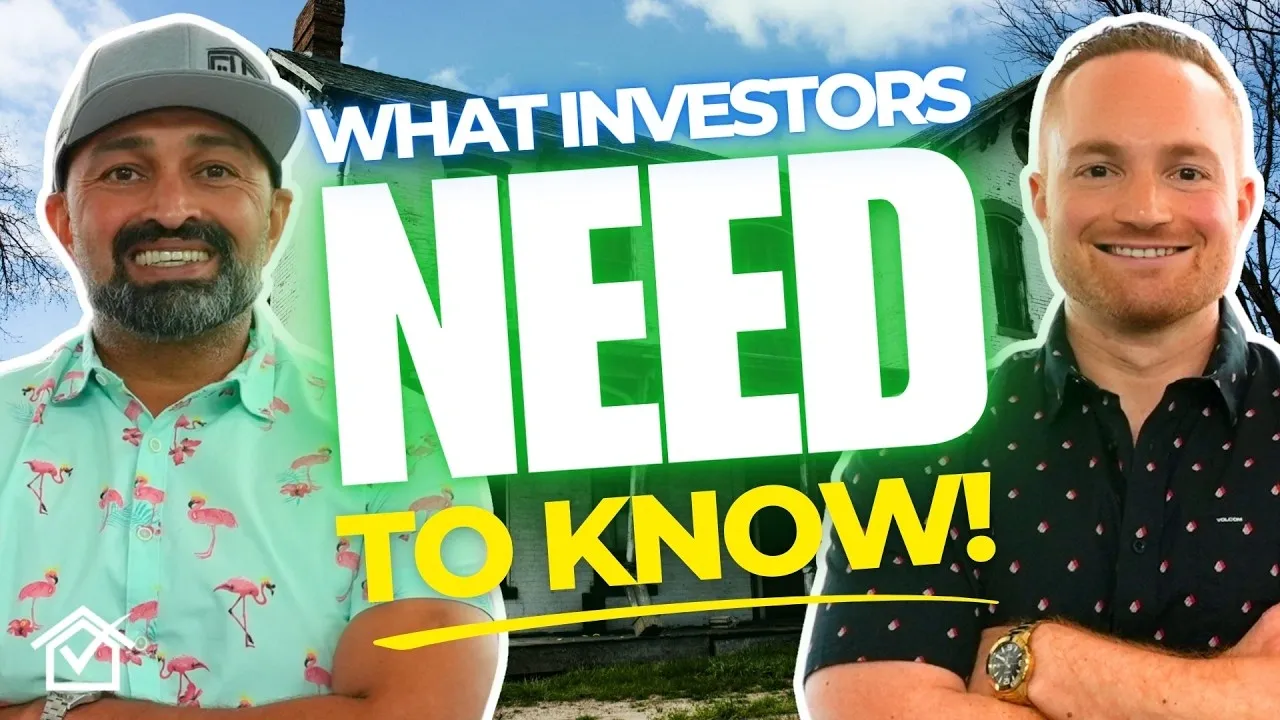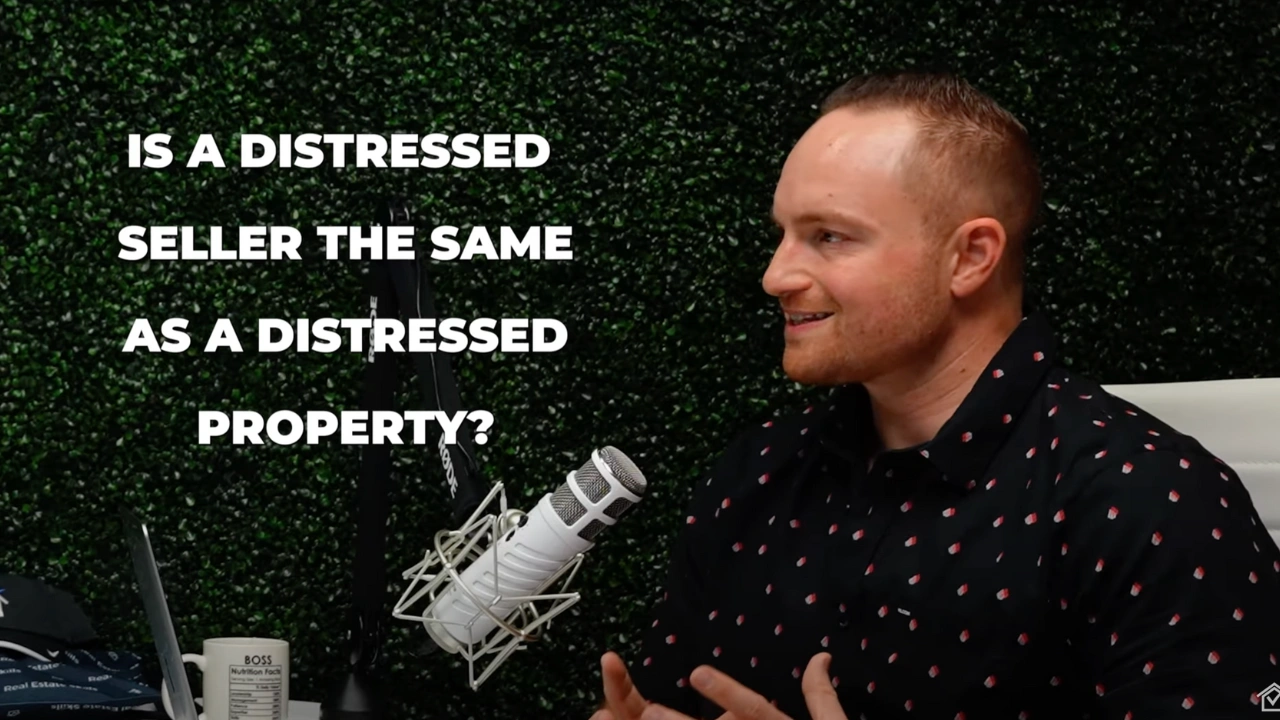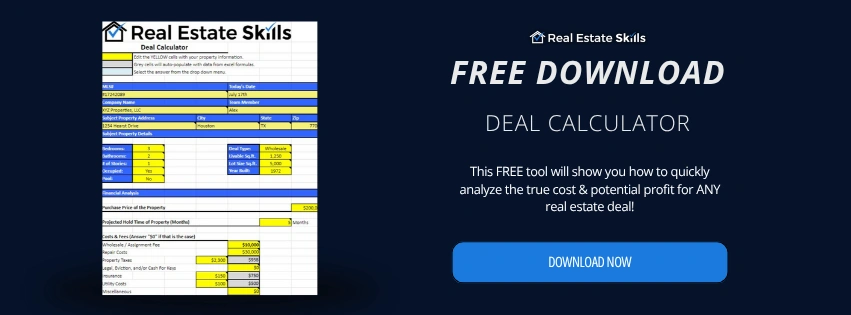
What Are Distressed Sellers In Real Estate?
Sep 11, 2025
If you've ever wondered how to consistently find motivated seller leads—the kind that turn into profitable wholesale deals, fix and flips, and long-term rentals—then you need to understand distressed sellers.
Hey everyone, I'm Ryan Zomarodi, co-founder of Real Estate Skills. In this series, we're deep diving into distressed sellers in real estate, who they are, the different situations they face, and how investors, agents, and wholesalers can ethically help them while creating profitable deals.
I'm also bringing on a special guest, a real estate entrepreneur with over two decades of experience. He has flipped countless homes and runs one of the top construction and investment companies in San Diego. We're going to break down everything you need to know about distressed sellers so you can use these strategies in your own business.
Let's get started.
- Guest Introduction: Henish from Cal HomeCo
- What Are Distressed Sellers?
- Distressed Sellers vs. Distressed Properties
- Distressed Sellers vs. Motivated Sellers
- Why Understanding Distressed Sellers Matters
If you’re serious about doing your first real estate deal, don’t waste time guessing what works. Our FREE Training walks you through how to consistently find deals, flip houses, and build passive income—without expensive marketing or trial and error.
This FREE Training gives you the same system our students use to start fast and scale smart. Watch it today—so you can stop wondering and start closing.
Guest Introduction: Henish from Cal HomeCo
Today, I'm here with Henish, a local real estate entrepreneur in San Diego. He's the owner of Cal HomeCo, a construction and development company. He's also a very experienced real estate broker leading a team of over 20 agents.
With over two decades in the business, Henish has worked with countless sellers. We're going to dive into the different types of distressed sellers, the situations they face, and how to work with them as investors and real estate professionals.
So, let’s take it from the top—what are distressed sellers in real estate?
What Are Distressed Sellers?
Distressed sellers are people who are having a hard time maintaining their house, keeping it, or making their payments.
This can happen for a variety of reasons, such as job loss, health issues, inheriting a property they can’t maintain, or taking on a loan that has now adjusted and become unaffordable.
Many of the cases Henish sees involve people who lost their job and fell behind on payments. After a few months, the bank files a notice of default and begins the foreclosure process.
Other cases may involve lawsuits, judgments, or financial emergencies. These sellers aren’t simply choosing to sell because it’s a good time; they’re forced into selling due to urgent financial reasons.
Typically, distressed sellers are in financial distress. They may be late on their mortgage, facing life events that require liquidity, or dealing with loans and fees that keep accruing. Selling their property gives them access to cash, which can often be the difference between moving forward and losing everything to foreclosure.
Read Also: How To Find Houses In Foreclosure To Buy (FAST & FREE)

Distressed Sellers vs. Distressed Properties
Is a distressed seller the same as a distressed property? Not always.
Distressed sellers often have distressed properties, but that’s not always the case. A home may be in rough condition—with overgrown weeds, deferred maintenance, or a leaking roof—yet the owner might still be making mortgage payments on time.
Conversely, a homeowner could be financially distressed while their property looks fine. The key difference is that distressed sellers are experiencing financial or personal hardship, while distressed properties reflect physical issues with the home.
Distressed Sellers vs. Motivated Sellers
Are distressed sellers the same as motivated sellers? No.
Distressed sellers rarely want to sell their house. Most want to stay in their home as long as possible, even when faced with overwhelming debt, bad loans, or inherited properties they can’t manage.
As real estate professionals, part of our role is to help homeowners understand their options. We educate them on whether keeping the home is possible, or if selling is the better choice before the bank takes it from them.
Even though distressed sellers are not necessarily motivated to sell, over 80% of people in default end up selling within six months. That’s because they run out of options and ultimately need to sell before the bank forecloses.
If you want to analyze the types of deals we’re discussing with confidence, be sure to download our free deal calculator at realestateskills.com/calc
. It's the same tool we've used for 13 years to analyze wholesale, fix and flip, and rental deals.
You can also check out our free on-demand training at realestateskills.com/watch
to learn how to wholesale, flip houses, and invest in rentals without spending a dime on marketing. Both resources are 100% free.
Read Also: How To Talk To Motivated Sellers [FREE SCRIPT DOWNLOAD]
Why Understanding Distressed Sellers Matters
There’s a lot to unpack when it comes to distressed sellers. You may deal with banks, municipalities, and homeowners who aren’t in the clearest headspace.
Understanding distressed sellers is important because at the end of the day, they’re people going through a tough time. They may have once been financially and emotionally stable, but now they’re struggling.
Approaching these situations with empathy builds rapport and trust. Henish treats homeowners as if they were his own family, focusing on helping them understand their options instead of talking down to them.
Sellers often mention how other investors were rude, dismissive, or demeaning. By being an adviser and counselor—someone at their level—you create trust and show them that their decisions matter. This approach allows homeowners to make educated choices about their property.
Building Trust and Rapport with Distressed Sellers
When Henish meets a distressed seller, his first question is simple: “Tell me what happened when you missed your first payment.”
This opens the door for the homeowner to share their story, and it allows him to empathize with their situation. Having seen friends and family lose homes during past recessions, Henish understands the emotional toll this can take.
That empathy, combined with experience, makes sellers feel like they’re working with someone who truly understands. On top of that, Henish and his team help about five people each month delay, prevent, or stop foreclosure—sometimes temporarily, and sometimes permanently through a sale.
At the end of the day, building trust and rapport with distressed sellers is about meeting them where they are, understanding their challenges, and providing real solutions.
If you’re serious about doing your first real estate deal, don’t waste time guessing what works. Our FREE Training walks you through how to consistently find deals, flip houses, and build passive income—without expensive marketing or trial and error.
This FREE Training gives you the same system our students use to start fast and scale smart. Watch it today—so you can stop wondering and start closing.
*Disclosure: Real Estate Skills is not a law firm, and the information contained here does not constitute legal advice. You should consult with an attorney before making any legal conclusions. The information presented here is educational in nature. All investments involve risks, and the past performance of an investment, industry, sector, and/or market does not guarantee future returns or results. Investors are responsible for any investment decision they make. Such decisions should be based on an evaluation of their financial situation, investment objectives, risk tolerance, and liquidity needs.







